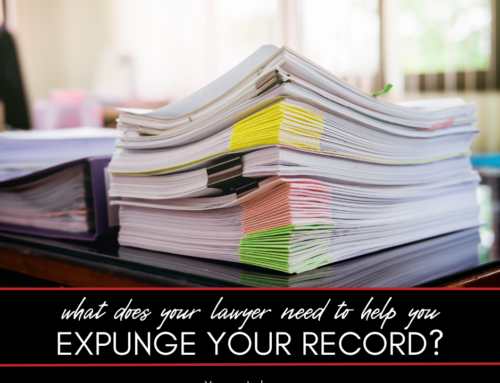
Expunging your criminal record in Indiana can be a life-changing step, but it’s not always straightforward. Many people try to handle this process on their own and end up facing unexpected challenges. This guide aims to highlight common mistakes and provide valuable insights to help you navigate the expungement process more effectively.
Mistakes People Make When They Try to Expunge Their Own Records in Indiana
This guide explains the following:
- Misunderstanding eligibility requirements
- Incorrect or incomplete paperwork
- Overlooking the timing of the application
- Failing to address all relevant records
- Underestimating the legal complexity
- Neglecting to follow up
Here’s a closer look at each.
Misunderstanding Eligibility Requirements
In Indiana, understanding whether you’re eligible for expungement is a crucial first step. The eligibility criteria vary based on the type and severity of the offense, as well as how much time has passed since the conviction or arrest. For example, certain serious offenses may not be eligible for expungement, or there may be a required waiting period after the completion of your sentence. Misinterpreting these rules can lead to a rejected application. It’s important to thoroughly review the specific criteria that apply to your case to determine if you can proceed with the expungement process.
Incorrect or Incomplete Paperwork
Filing for expungement requires accurate and complete paperwork. This involves filling out several forms that detail your personal information, criminal history, and the specifics of your request. Any mistakes or missing information in these documents can cause significant delays or even lead to the denial of your application. It’s essential to pay close attention to detail and ensure that every required field is filled out correctly and that you provide all necessary documents and information.
Overlooking the Timing of the Application
The timing of your expungement application is critical. Indiana law specifies certain timeframes during which you can apply for expungement, depending on your case. Submitting an application too early or after the deadline can result in its rejection. You need to be aware of these timeframes, which can vary depending on factors like the type of conviction and when you completed your sentence, to ensure you file your application at the appropriate time.
Failing to Address All Relevant Records
Expungement in Indiana can be complex, especially if you have multiple records in different jurisdictions. It’s important to include all relevant records in your application. Overlooking any part of your criminal history can leave some records unsealed, which can continue to impact your life. This step requires a comprehensive review of your entire criminal history to ensure no records are missed in the expungement process.
Underestimating the Legal Complexity
The legal process of expunging records in Indiana involves navigating various laws and regulations. Each case has its unique complexities and challenges. Without a proper understanding of the legal system and expungement laws, it’s easy to make errors that can jeopardize your application. It’s often beneficial to seek legal advice or representation to navigate these complexities effectively.
Neglecting to Follow Up
Once you submit your expungement application, the process is not over. Active follow-up is important to monitor the status of your application and respond to any requests for additional information or clarification. Failing to follow up can lead to delays or missed opportunities to address any issues that arise during the review process. Staying engaged and responsive throughout the process is crucial for a successful outcome.
FAQ About Expunging Your Own Records in Indiana
Check out these commonly asked questions about expunging your own records in Indiana. If you don’t see the answers here, please call our office, and we’ll get you the information you need.
What Are the Eligibility Requirements for Expungement in Indiana?
In Indiana, your eligibility for expungement depends on the type of offense, how long ago it occurred, and your overall criminal history. Generally, non-violent offenses are more likely to qualify for expungement. For instance, misdemeanors and certain low-level felonies might be eligible, while serious crimes like violent offenses may not be. The time factor is also important – there’s often a required waiting period after your conviction or the completion of your sentence before you can apply for expungement. Your criminal history plays a role too; having fewer offenses might increase your chances of eligibility.
How Long Does the Expungement Process Take?
The duration of the expungement process in Indiana varies. It can take anywhere from a few months up to a year. This timeline is influenced by several factors, including the complexity of your criminal record, the number of offenses you’re seeking to expunge, and the workload of the courts handling your case. Sometimes, if your case is straightforward and the court system is not backlogged, the process might be quicker. However, more complicated cases, or cases in busier jurisdictions, can take longer.
Can I Expunge Multiple Offenses?
Yes, in Indiana, you can expunge multiple offenses, but it depends on their nature and when they occurred. The law allows for the expungement of multiple offenses under certain conditions. For example, if you have a series of related offenses or a chain of minor misdemeanors, they might be eligible for expungement as a group. The key is that the offenses should not be of a serious nature, and there should be a demonstrable period of no further offenses.
Do I Need to Expunge Arrests That Did Not Lead to Convictions?
Expunging arrests that did not lead to convictions is advisable. In Indiana, even if you were arrested and not convicted, that arrest still appears on your criminal record. This can have various negative impacts, such as affecting job prospects or housing applications. Expunging these arrests can clean your record and remove these potential barriers, even though they didn’t result in a conviction.
What Happens If My Expungement Application Is Denied?
If your expungement application in Indiana is denied, you generally have the option to address the reasons for the denial and reapply. Understanding why your application was rejected is crucial. It could be due to a mistake in the paperwork, ineligibility at the time of application, or other legal reasons. Once you understand and rectify these issues, you can reapply, improving your chances of success in the next attempt.
Do You Need to Talk to an Indiana Expungement and Sealing Attorney?
If you’re ready for a fresh start, we may be able to help. Call us at 317-647-5476 or fill out the form below for a free consultation on expungement. We’re here to answer your questions and get you the fresh start you deserve.













